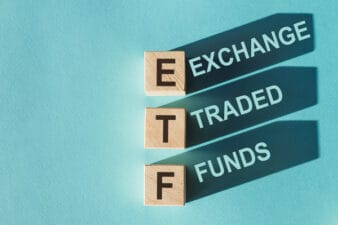When you boil it down, there are two types of “active investing”: growth investing and value investing.
There’s also “passive investing,” but that’s a different story altogether.
Growth investing tends to get a lot of attention in certain circles largely because it can be a lot of fun to speculate on what company, industry, or technology is going to be the next big thing.
Recent successes in this area have largely come from the marijuana sector with several U.S. states having legalized recreational use of the drug in recent years, and the Canadian federal government set to unveil its own plan for legal recreational use later this year.
Lately, however, the marijuana sector has cooled off somewhat with legalization just around the corner, and many companies in the sector, including Canopy Growth Corp., Aurora Cannabis Inc., and Aphria Inc., having already experienced meteoric rises in their share prices.
The attention has since seemingly turned to artificial intelligence technology and large investments being made by the likes of some heavy hitters, including Alphabet Inc. and Tesla Inc.
But without getting into the many wonders and possibilities of artificial intelligence and what it could hold for the future, one would be remiss not to include that it’s actually value investing, and not growth investing, that has been proven to outperform the market over time.
Nearly all of the most famous or successful value investors from the past 50 years have identified themselves as value investors.
That includes the world’s most successful investor of all time, Warren Buffett.
And if you look even closer, within the realm of value investing, there is a little corner of the market commonly referred to as “deep value.”
This is where the “Oracle of Omaha,” Warren Buffett, caught his first break investing, and it’s also where you’ll find companies like Cenovus Energy Inc. (TSX:CVE)(NYSE:CVE) today.
You see, value investing is predicated on finding, identifying, and investing in the shares of company that are effectively trading at “bargain” or “sale” prices.
There are more than a few ways to identify if a company is “on sale” or not, but typically, value investors will look to financial performance measures like a company’s price-to-earnings ratio (P/E ratio), price-to-book ratio (P/B ratio), or dividend yield as indicators to determine if a particular share qualifies as offering good value.
And then every so often you’ll come across a company whose shares offer so much value that it’s said the stock is trading at “deep-value” levels.
Cenovus arguably fits that bill.
The company’s shares trade at an almost unbelievable 0.68 times P/B ratio.
For a company like Cenovus, with real, “hard assets” in the ground by way of its oil and gas deposits, that means if the company could sell all of its assets, pay back all of its liabilities, and “net out,” or walk away with $16.13 per share.
Cenovus shares entered Tuesday’s trading at just $10.81, or a 49% discount to that value.
So, you can see where the moniker “deep value” gets its name.
What you should do
Shares are already up 15.5% since the start of March and are now sitting just shy of the stock’s 200-day moving average.
Foolish investors may want to wait and see if they can pick up Cenovus shares on the next pullback or alternatively make their move if the stock breaks above the 200-day moving average with a bit of momentum.








